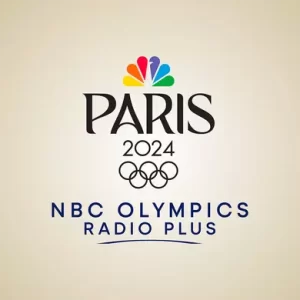
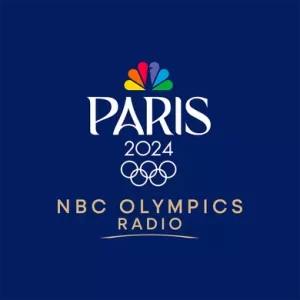 iHeartMedia is NBCU’s exclusive audio partner for the 2024 Summer Olympics, which kick off this week. In addition to listening to events on iHeartMedia broadcast radio stations, fans can tune-in to events through dedicated 24-7 digital stations – which include – NBC Olympics Radio Plus and NBC Olympics Radio – on the iHeart app. Among big events tomorrow (Saturday, 7/27) are: men’s/women’s swimming (NBC Olympics Radio Plus); men’s/women’s swimming finals (NBC Olympics Radio); women’s beach volleyball – USA versus Canada (NBC Olympics Radio); and men’s soccer – USA versus New Zealand (NBC Olympics Radio Plus). On Sunday (7/28), it’s men’s/women’s swimming finals (NBC Olympics Radio); women’s soccer – USA versus Germany (NBC Olympics Radio Plus); and men’s basketball – USA versus Serbia (NBC Olympics Radio).
iHeartMedia is NBCU’s exclusive audio partner for the 2024 Summer Olympics, which kick off this week. In addition to listening to events on iHeartMedia broadcast radio stations, fans can tune-in to events through dedicated 24-7 digital stations – which include – NBC Olympics Radio Plus and NBC Olympics Radio – on the iHeart app. Among big events tomorrow (Saturday, 7/27) are: men’s/women’s swimming (NBC Olympics Radio Plus); men’s/women’s swimming finals (NBC Olympics Radio); women’s beach volleyball – USA versus Canada (NBC Olympics Radio); and men’s soccer – USA versus New Zealand (NBC Olympics Radio Plus). On Sunday (7/28), it’s men’s/women’s swimming finals (NBC Olympics Radio); women’s soccer – USA versus Germany (NBC Olympics Radio Plus); and men’s basketball – USA versus Serbia (NBC Olympics Radio).
To honor the late Gracie Allen on her birthday, The Alliance for Women in Media Foundation holds the inaugural “Gracies Day of Giving” today (Friday, 7/26). “Gracies Day of Giving” is dedicated to raising funds that directly impact the foundation’s mission of creating positive change in media by producing educational programs, recognition events and scholarships benefitting students pursuing media careers. Funds raised will support the continuation of programs including the Gracies Leadership Awards Fellowship, which will celebrate the profound influence women have made in the media industry. That award ceremony will be held November 19 at New York City’s Tribeca 360°. Those interested in participating in “Gracies Day of Giving” should visit AWMF’s donation page or may give via Venmo @AWM-Foundation. On social media, use the hashtag #GraciesDayOfGiving. Vaudevillian, singer, actress, comedian Grace Ethel Cecile Rosalie Allen was born on July 26, 1895 in San Francisco; Gracie Allen was 69 years old when she died 60 years ago (August 27, 1964) in Hollywood.
Richard Neer (l) and Mark Chernoff (r), two Big Apple radio legends, with a long history of having worked together at heritage stations spanning both rock music and sports talk for more than four decades, grabbed some lunch and caught up on both old and current times this past Wednesday (7/24) while crossing paths in Charlotte, NC. Chernoff, who led all-sports WFAN-AM/FM, New York (660/101.9) for nearly 30 years before exiting in 2021 as an honored format pioneer also played a major programming role “back in the day” at album rocker WNEW-FM (as well as other historic outlets). 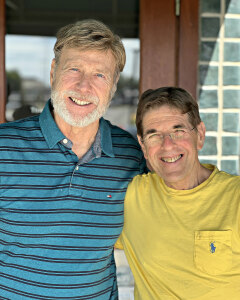 Neer – a past PD and air personality at WNEW-FM – still serves as a weekend host on WFAN where he’s been a market staple for decades in addition to being an accomplished author of a series of “Riley King” murder mysteries as well as the historic evergreen FM: The Rise and Fall of Rock Radio (Villard Books, 2001). Chernoff still keeps his hand in both formats where he serves as a sports reporter and part-time DJ at Press Communications’ classic rock “107.1 The Boss” WWZY, Monmouth, NJ.
Neer – a past PD and air personality at WNEW-FM – still serves as a weekend host on WFAN where he’s been a market staple for decades in addition to being an accomplished author of a series of “Riley King” murder mysteries as well as the historic evergreen FM: The Rise and Fall of Rock Radio (Villard Books, 2001). Chernoff still keeps his hand in both formats where he serves as a sports reporter and part-time DJ at Press Communications’ classic rock “107.1 The Boss” WWZY, Monmouth, NJ.
Salem Media Sacramento contemporary Christian KKFS music director/morning show host Mike Wilson is elevated to program director of the group’s three-station cluster, which includes news/talk KTKZ “1380 The Answer.”
Share this with your network



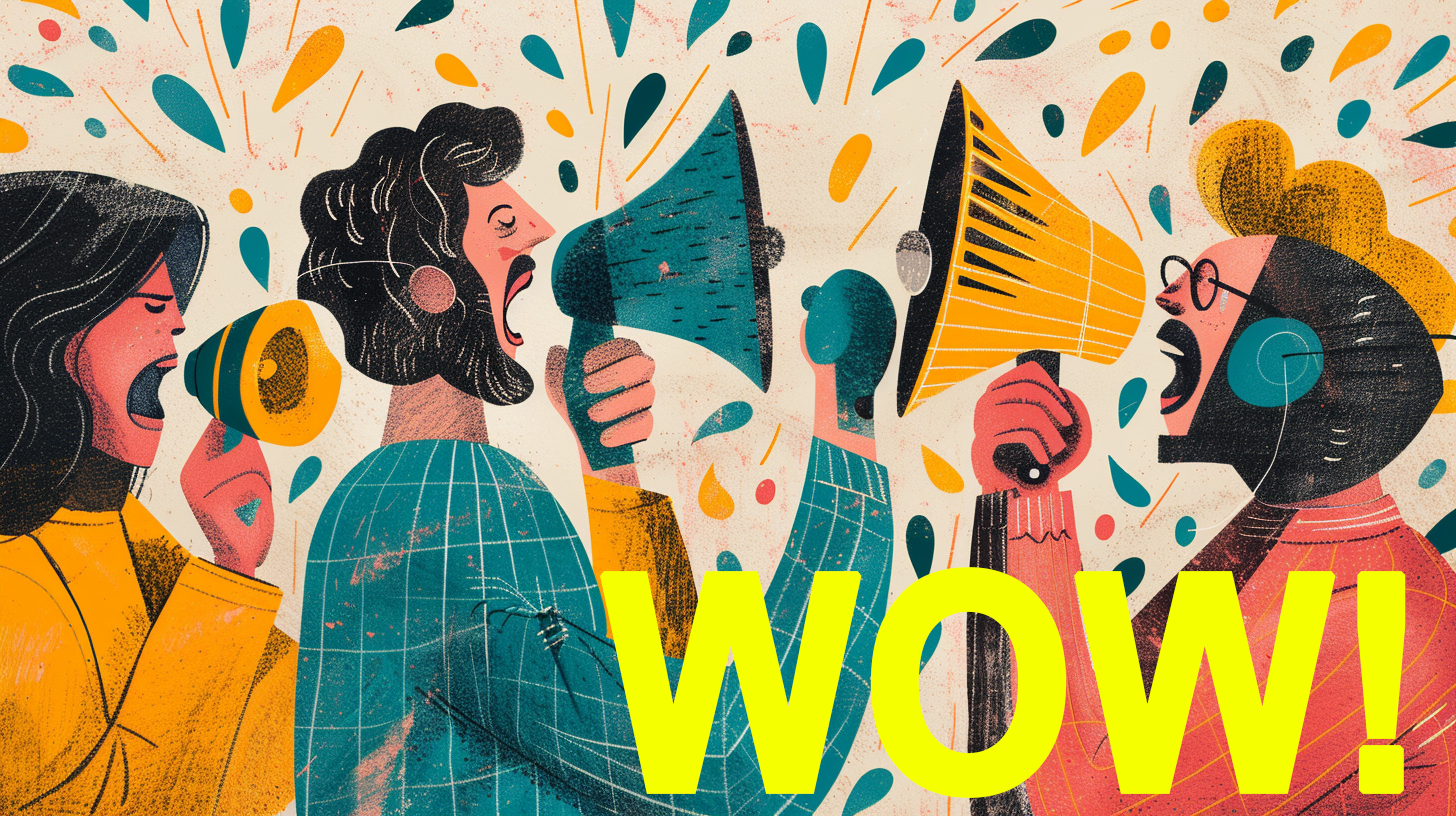
 The 33-year (1975 – 2008) radio voice of the NBA Houston Rockets, Gene Peterson, died this past Wednesday (7/24) succumbing to cancer at the age of 83. “How sweet it is” was Peterson’s signature victory call and – as noted on a Rockets’ Facebook page post – that catch phrase, “spanned across many franchise moments that will forever live in the hearts and minds of Rockets fans.” Peterson once told The Houston Chronicle, “I’ve watched the Rockets’ family grow, and I’ve watched my own family grow through it all; I know I’ve been blessed to live this life.” Team owner Tilman Fertitta comments, “We say goodbye to my friend and broadcasting legend, Gene Peterson. Gene devoted his life to the Rockets and brought passion and energy towards creating timeless memories for countless fans, including myself. I am forever grateful for the time I knew Gene and for the invaluable contributions he made to our city and franchise for over three decades. My thoughts are with his [family] during this difficult time.”
The 33-year (1975 – 2008) radio voice of the NBA Houston Rockets, Gene Peterson, died this past Wednesday (7/24) succumbing to cancer at the age of 83. “How sweet it is” was Peterson’s signature victory call and – as noted on a Rockets’ Facebook page post – that catch phrase, “spanned across many franchise moments that will forever live in the hearts and minds of Rockets fans.” Peterson once told The Houston Chronicle, “I’ve watched the Rockets’ family grow, and I’ve watched my own family grow through it all; I know I’ve been blessed to live this life.” Team owner Tilman Fertitta comments, “We say goodbye to my friend and broadcasting legend, Gene Peterson. Gene devoted his life to the Rockets and brought passion and energy towards creating timeless memories for countless fans, including myself. I am forever grateful for the time I knew Gene and for the invaluable contributions he made to our city and franchise for over three decades. My thoughts are with his [family] during this difficult time.”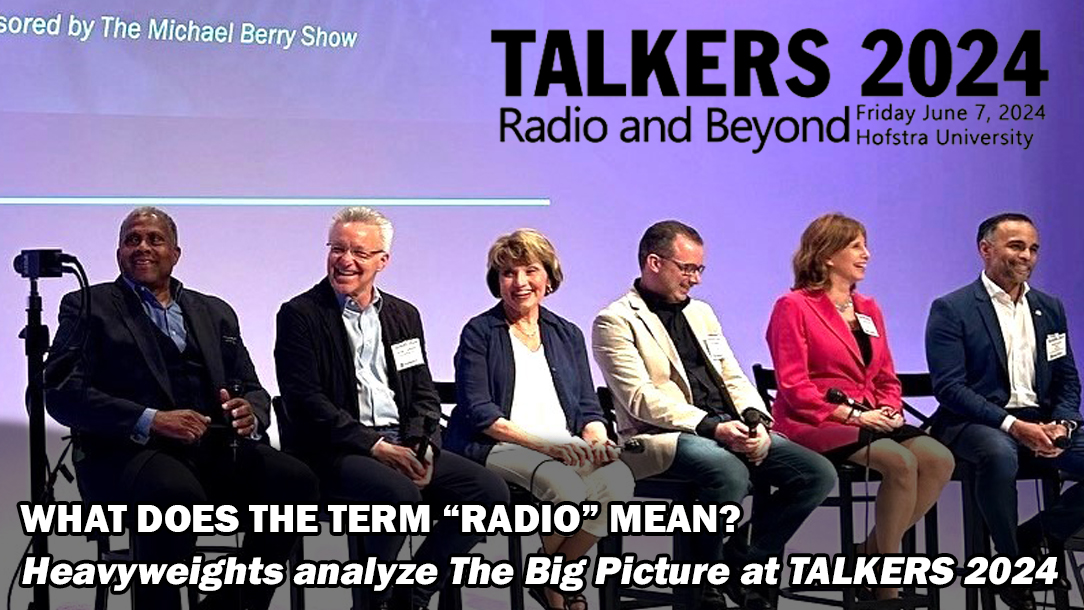

 iHeartMedia is NBCU’s exclusive audio partner for the 2024 Summer Olympics, which kick off this week. In addition to listening to events on iHeartMedia broadcast radio stations, fans can tune-in to events through dedicated 24-7 digital stations – which include – NBC Olympics Radio Plus and NBC Olympics Radio – on the iHeart app. Among big events tomorrow (Saturday, 7/27) are: men’s/women’s swimming (NBC Olympics Radio Plus); men’s/women’s swimming finals (NBC Olympics Radio); women’s beach volleyball – USA versus Canada (NBC Olympics Radio); and men’s soccer – USA versus New Zealand (NBC Olympics Radio Plus). On Sunday (7/28), it’s men’s/women’s swimming finals (NBC Olympics Radio); women’s soccer – USA versus Germany (NBC Olympics Radio Plus); and men’s basketball – USA versus Serbia (NBC Olympics Radio).
iHeartMedia is NBCU’s exclusive audio partner for the 2024 Summer Olympics, which kick off this week. In addition to listening to events on iHeartMedia broadcast radio stations, fans can tune-in to events through dedicated 24-7 digital stations – which include – NBC Olympics Radio Plus and NBC Olympics Radio – on the iHeart app. Among big events tomorrow (Saturday, 7/27) are: men’s/women’s swimming (NBC Olympics Radio Plus); men’s/women’s swimming finals (NBC Olympics Radio); women’s beach volleyball – USA versus Canada (NBC Olympics Radio); and men’s soccer – USA versus New Zealand (NBC Olympics Radio Plus). On Sunday (7/28), it’s men’s/women’s swimming finals (NBC Olympics Radio); women’s soccer – USA versus Germany (NBC Olympics Radio Plus); and men’s basketball – USA versus Serbia (NBC Olympics Radio). Neer – a past PD and air personality at WNEW-FM – still serves as a weekend host on WFAN where he’s been a market staple for decades in addition to being an accomplished author of a series of “Riley King” murder mysteries as well as the historic evergreen FM: The Rise and Fall of Rock Radio (Villard Books, 2001). Chernoff still keeps his hand in both formats where he serves as a sports reporter and part-time DJ at Press Communications’ classic rock “107.1 The Boss” WWZY, Monmouth, NJ.
Neer – a past PD and air personality at WNEW-FM – still serves as a weekend host on WFAN where he’s been a market staple for decades in addition to being an accomplished author of a series of “Riley King” murder mysteries as well as the historic evergreen FM: The Rise and Fall of Rock Radio (Villard Books, 2001). Chernoff still keeps his hand in both formats where he serves as a sports reporter and part-time DJ at Press Communications’ classic rock “107.1 The Boss” WWZY, Monmouth, NJ.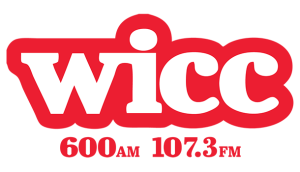 Connoisseur Media Connecticut is looking for a talk show host for weekdays on WICC-AM/FM. This position will work a four-hour live talk program to air Monday through Saturday. The ideal candidate will be able to book guests, create compelling local content, field listener phone calls, and pivot subject matter as the local news cycle dictates. The station also has an opening for a morning news reporter for weekdays. This position will work weekdays during the Melissa in the Morning Show. The ideal candidate will be able to travel to Fairfield County locations and report live, collect and edit audio, post on social media, and deliver produced stories that can run throughout the day.
Connoisseur Media Connecticut is looking for a talk show host for weekdays on WICC-AM/FM. This position will work a four-hour live talk program to air Monday through Saturday. The ideal candidate will be able to book guests, create compelling local content, field listener phone calls, and pivot subject matter as the local news cycle dictates. The station also has an opening for a morning news reporter for weekdays. This position will work weekdays during the Melissa in the Morning Show. The ideal candidate will be able to travel to Fairfield County locations and report live, collect and edit audio, post on social media, and deliver produced stories that can run throughout the day. passion to continue SRG’s long tradition into the future. The person for this position will need to live in Spencer, Iowa (or surrounding area). We need someone who understands small-market, local radio and is willing to be involved in the community. Knowledge of radio automation software, adobe audition, word press, and general computer experience is preferred. We value creativity and the desire to win! Duties for this position include (but not limited to): 1) Gathering, writing and reading local news stories; 2) Covering some meetings/events; 3) Conducting on-air interviews; 4) Anchoring LIVE, local, severe weather coverage; 5) Compiling/recording local weather data for National Weather Service; 6) Read LIVE market updates on air; 7) Posting local content on our websites/social media platforms. Send your resume and demo to operations manager Kevin Tlam at
passion to continue SRG’s long tradition into the future. The person for this position will need to live in Spencer, Iowa (or surrounding area). We need someone who understands small-market, local radio and is willing to be involved in the community. Knowledge of radio automation software, adobe audition, word press, and general computer experience is preferred. We value creativity and the desire to win! Duties for this position include (but not limited to): 1) Gathering, writing and reading local news stories; 2) Covering some meetings/events; 3) Conducting on-air interviews; 4) Anchoring LIVE, local, severe weather coverage; 5) Compiling/recording local weather data for National Weather Service; 6) Read LIVE market updates on air; 7) Posting local content on our websites/social media platforms. Send your resume and demo to operations manager Kevin Tlam at 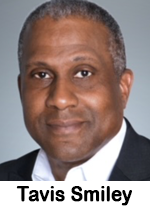 Airing in more than 40 markets from Los Angeles flagship KBLA “Talk 1580,” SmileyAudioMedia’s “Tavis Smiley” show will be offered free to urban-targeted stations for one week during next month’s Democratic National Convention (8/19-22). The SmileyAudioMedia owner/TALKERS 2023 “Freedom Of Speech” award winner will broadcast from the event’s radio row inside the site of the convention – Chicago’s United Center – and other relevant locations. Smiley tells TALKERS, “Black voters will be at the epicenter of whatever happens in Chicago, a fact made more relevant with the increasing likelihood that Kamala Harris will be the Democratic Party’s presidential nominee. If the Democratic Party hopes to achieve victory in November, it will be because Black voters saved the party and, ultimately, American democracy. To date, the 2024 election has been unpredictable and unprecedented. As the battle between the candidates enters its final stretch, the policies discussed and the decisions made will have a profound and lasting impact on Black America. It’s appropriate that ‘Tavis Smiley’ listeners will be at the center of the action as the conversation occurs.” SmileyAudioMedia syndication manager Rob Wilkins (who can be reached at
Airing in more than 40 markets from Los Angeles flagship KBLA “Talk 1580,” SmileyAudioMedia’s “Tavis Smiley” show will be offered free to urban-targeted stations for one week during next month’s Democratic National Convention (8/19-22). The SmileyAudioMedia owner/TALKERS 2023 “Freedom Of Speech” award winner will broadcast from the event’s radio row inside the site of the convention – Chicago’s United Center – and other relevant locations. Smiley tells TALKERS, “Black voters will be at the epicenter of whatever happens in Chicago, a fact made more relevant with the increasing likelihood that Kamala Harris will be the Democratic Party’s presidential nominee. If the Democratic Party hopes to achieve victory in November, it will be because Black voters saved the party and, ultimately, American democracy. To date, the 2024 election has been unpredictable and unprecedented. As the battle between the candidates enters its final stretch, the policies discussed and the decisions made will have a profound and lasting impact on Black America. It’s appropriate that ‘Tavis Smiley’ listeners will be at the center of the action as the conversation occurs.” SmileyAudioMedia syndication manager Rob Wilkins (who can be reached at  In a research piece posted on the Radio Television Digital News Association’s website, Syracuse University research professor of broadcast & digital journalism Bob Papper and Syracuse University associate professor of broadcast & digital journalism Keren Henderson reveal this year’s radio news salaries fell 2.5%. With 2024 inflation at 3.1%, real wages (actual wages minus inflation) dropped 5.6%. Real wage radio salaries have lost .5% (2021); 6.6% (2022); 1.9% (2023); and 2.5% (2024). Thus, a total wage loss of 11.5% over the last four years. While the median salary for news directors remained steady, the average salary increased 6.7%. An average reporter’s salary dropped .9%, but the median salary is up 12.5%. News producers did even better with average salary (+5%) and median salary (+10.4%). News anchors, sports anchors and sports reporters, however, all lost ground in both average and median salaries. Web producers/editors dropped slightly on average and held even on median. Historically, non-commercial radio salaries have been substantially higher than commercial radio salaries, but Papper and Henderson note that’s not the case this year. They write, “When we look at large and major markets, all the average commercial salaries are higher than non-commercial salaries, and median salaries are fairly close. Overall, commercial radio salaries in large and major markets went up a whopping 23.5% [while] non-commercial salaries went down 8% from a year ago. The drop in radio news salaries lies almost entirely in the non-commercial world.”
In a research piece posted on the Radio Television Digital News Association’s website, Syracuse University research professor of broadcast & digital journalism Bob Papper and Syracuse University associate professor of broadcast & digital journalism Keren Henderson reveal this year’s radio news salaries fell 2.5%. With 2024 inflation at 3.1%, real wages (actual wages minus inflation) dropped 5.6%. Real wage radio salaries have lost .5% (2021); 6.6% (2022); 1.9% (2023); and 2.5% (2024). Thus, a total wage loss of 11.5% over the last four years. While the median salary for news directors remained steady, the average salary increased 6.7%. An average reporter’s salary dropped .9%, but the median salary is up 12.5%. News producers did even better with average salary (+5%) and median salary (+10.4%). News anchors, sports anchors and sports reporters, however, all lost ground in both average and median salaries. Web producers/editors dropped slightly on average and held even on median. Historically, non-commercial radio salaries have been substantially higher than commercial radio salaries, but Papper and Henderson note that’s not the case this year. They write, “When we look at large and major markets, all the average commercial salaries are higher than non-commercial salaries, and median salaries are fairly close. Overall, commercial radio salaries in large and major markets went up a whopping 23.5% [while] non-commercial salaries went down 8% from a year ago. The drop in radio news salaries lies almost entirely in the non-commercial world.”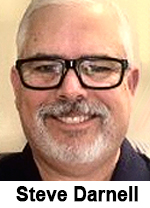 Most recently serving as president of iHeartMedia’s “Pacific Area,” Steve Darnell transfers to Sacramento as metro president, succeeding Sara McClure (see separate story
Most recently serving as president of iHeartMedia’s “Pacific Area,” Steve Darnell transfers to Sacramento as metro president, succeeding Sara McClure (see separate story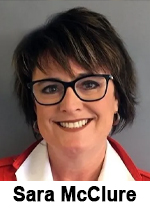 Effective immediately, nine-year iHeartMedia Sacramento market president Sara McClure transfers within the company to become VP of its Unified Partnerships For California division. Replacing McClure as Sacramento market president is Steve Darnell (see story above). iHeartMedia Unified Partnerships president Michael Preacher states, “I am extremely excited to have Sara join our division. She will be broadening her responsibilities and offering her incredible expertise to leading agency partners throughout California.” McClure looks forward to, as she notes, “advancing my career by joining the Unified Partnership division. This incredible team has unlimited possibilities and I’m excited to bring my scope of marketing and big-idea thinking to our partners.” The Chico State University (California) alum has nearly 30 years of experience as a media executive, including director of sales for Entercom Sacramento, as well as positions at CBS Radio and Sinclair Broadcasting. She will report to United Partnerships EVP Breeanna Malik. Unified Partnerships provides advanced media resources for its ad agency partners.
Effective immediately, nine-year iHeartMedia Sacramento market president Sara McClure transfers within the company to become VP of its Unified Partnerships For California division. Replacing McClure as Sacramento market president is Steve Darnell (see story above). iHeartMedia Unified Partnerships president Michael Preacher states, “I am extremely excited to have Sara join our division. She will be broadening her responsibilities and offering her incredible expertise to leading agency partners throughout California.” McClure looks forward to, as she notes, “advancing my career by joining the Unified Partnership division. This incredible team has unlimited possibilities and I’m excited to bring my scope of marketing and big-idea thinking to our partners.” The Chico State University (California) alum has nearly 30 years of experience as a media executive, including director of sales for Entercom Sacramento, as well as positions at CBS Radio and Sinclair Broadcasting. She will report to United Partnerships EVP Breeanna Malik. Unified Partnerships provides advanced media resources for its ad agency partners.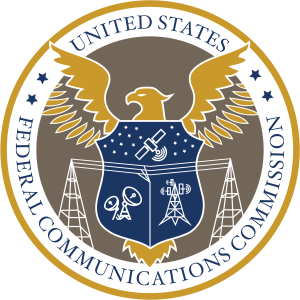
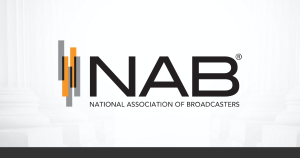 Under the Federal Communications Commission’s consideration is a proposal from Commander Communications Corporation that would create an FM broadcasting class known as “A10.” In addition to enhancing coverage in rural and underserved areas, it would grant power upgrades for roughly 1,400 Class A FMs, allowing a maximum of 10,000 watts. Approval would depend on a station’s geographical zone; tower height; and separation requirements. While the National Association of Broadcasters recognizes potential benefits for listeners – especially during emergencies – it urges caution owing to possible negative impacts. The NAB generally supports proposals designed to improve coverage areas, but says the “A10” proposal lacks technical analysis and information on how many stations may be upgradable. An NAB filing notes that, “While this could lead to improved service for additional listeners, it could also further squeeze the band in more markets and impact more FM services.” Also opposed is Cumulus Media, which cites an “unacceptable risk” to stations already competing against streaming services. Conversely, the Multicultural Media, Telecom & Internet Council favors the suggestion, stressing that many stations that would qualify for the upgrade are owned by minority and small-scale operators. This proposal would replace an earlier FCC one for a Class C4 FM station category. More than 100 independent and minority owners backed the idea, but it ran into opposition from larger companies and the NAB.
Under the Federal Communications Commission’s consideration is a proposal from Commander Communications Corporation that would create an FM broadcasting class known as “A10.” In addition to enhancing coverage in rural and underserved areas, it would grant power upgrades for roughly 1,400 Class A FMs, allowing a maximum of 10,000 watts. Approval would depend on a station’s geographical zone; tower height; and separation requirements. While the National Association of Broadcasters recognizes potential benefits for listeners – especially during emergencies – it urges caution owing to possible negative impacts. The NAB generally supports proposals designed to improve coverage areas, but says the “A10” proposal lacks technical analysis and information on how many stations may be upgradable. An NAB filing notes that, “While this could lead to improved service for additional listeners, it could also further squeeze the band in more markets and impact more FM services.” Also opposed is Cumulus Media, which cites an “unacceptable risk” to stations already competing against streaming services. Conversely, the Multicultural Media, Telecom & Internet Council favors the suggestion, stressing that many stations that would qualify for the upgrade are owned by minority and small-scale operators. This proposal would replace an earlier FCC one for a Class C4 FM station category. More than 100 independent and minority owners backed the idea, but it ran into opposition from larger companies and the NAB. Williamsburg, VA-based Local Daily Media acquires Connoisseur Media’s Frederick, Maryland news/talk WFMD “Free Talk 930” and country WFRE for $4.275 million. Connoisseur Media chief executive officer Jeff Warshaw tells TALKERS, “While it’s difficult for us to part with our Frederick stations, we were convinced that Local Daily Media’s management leadership and its focus in the Maryland/Virginia region could move these stations forward in a way we would be proud of. Senior management of Local Daily Media includes longtime Connoisseur partner Mike Dufort, who we have worked with closely and respect. Mike understands local radio and shares our view on the need for radio to be involved with and serve the local community.” Aforementioned Local Daily Media president Mike Dufort remarks, “With my nearly 11 years of working with Jeff and the entire Connoisseur team, I deeply understand and appreciate the care and nurturing that went into building these stations. I’m excited for the opportunity to continue along their journey to reaching even greater heights.” Meanwhile, Local Daily Media chief financial officer Adam Crotty adds, “We’re incredibly fortunate to welcome these legendary stations, along with their talented and dedicated teams, to our growing organization. Their rich history of supporting and improving the vibrant Frederick community will undoubtedly inspire our entire team to find new ways to positively impact each community we serve.” Connoisseur Media acquired “Free Talk 930” and WFRE five years ago from iHeartMedia’s Aloha Stations Trust in exchange for its Erie, Pennsylvania cluster.
Williamsburg, VA-based Local Daily Media acquires Connoisseur Media’s Frederick, Maryland news/talk WFMD “Free Talk 930” and country WFRE for $4.275 million. Connoisseur Media chief executive officer Jeff Warshaw tells TALKERS, “While it’s difficult for us to part with our Frederick stations, we were convinced that Local Daily Media’s management leadership and its focus in the Maryland/Virginia region could move these stations forward in a way we would be proud of. Senior management of Local Daily Media includes longtime Connoisseur partner Mike Dufort, who we have worked with closely and respect. Mike understands local radio and shares our view on the need for radio to be involved with and serve the local community.” Aforementioned Local Daily Media president Mike Dufort remarks, “With my nearly 11 years of working with Jeff and the entire Connoisseur team, I deeply understand and appreciate the care and nurturing that went into building these stations. I’m excited for the opportunity to continue along their journey to reaching even greater heights.” Meanwhile, Local Daily Media chief financial officer Adam Crotty adds, “We’re incredibly fortunate to welcome these legendary stations, along with their talented and dedicated teams, to our growing organization. Their rich history of supporting and improving the vibrant Frederick community will undoubtedly inspire our entire team to find new ways to positively impact each community we serve.” Connoisseur Media acquired “Free Talk 930” and WFRE five years ago from iHeartMedia’s Aloha Stations Trust in exchange for its Erie, Pennsylvania cluster.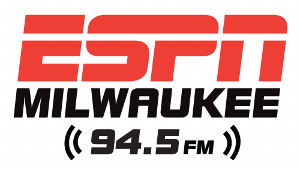 Good Karma Brands sports talk WKTI “94.5 ESPN Milwaukee” will continue to carry Marquette University basketball games through the 2027 – 2028 season. As part of the extension agreement, WKTI will provide live play-by-play broadcasts of all Marquette men’s basketball games, along with pre-game and post-game analysis. Good Karma Brands Milwaukee market manager Greg Scalzo comments, “We are thrilled to continue our partnership with Marquette University and produce high-quality broadcasts/content for their passionate fanbase.
Good Karma Brands sports talk WKTI “94.5 ESPN Milwaukee” will continue to carry Marquette University basketball games through the 2027 – 2028 season. As part of the extension agreement, WKTI will provide live play-by-play broadcasts of all Marquette men’s basketball games, along with pre-game and post-game analysis. Good Karma Brands Milwaukee market manager Greg Scalzo comments, “We are thrilled to continue our partnership with Marquette University and produce high-quality broadcasts/content for their passionate fanbase.  Marquette basketball has a rich tradition and we are committed to delivering the best coverage to our fans.” Marquette University vice president/director of athletics Bill Scholl comments, “Good Karma Brands has been a tremendous teammate over the years. We are thrilled that ‘94.5 ESPN Milwaukee’ will again be the radio destination for Marquette fans. It takes community-wide support to operate a program at the level of Marquette basketball and [Good Karma Brands founder/chief executive officer] Craig Karmazin and his team are an important piece of this equation.” In addition to game broadcasts, WKTI will feature a weekly (Thursday night) “Marquette Basketball Hour” throughout the season.
Marquette basketball has a rich tradition and we are committed to delivering the best coverage to our fans.” Marquette University vice president/director of athletics Bill Scholl comments, “Good Karma Brands has been a tremendous teammate over the years. We are thrilled that ‘94.5 ESPN Milwaukee’ will again be the radio destination for Marquette fans. It takes community-wide support to operate a program at the level of Marquette basketball and [Good Karma Brands founder/chief executive officer] Craig Karmazin and his team are an important piece of this equation.” In addition to game broadcasts, WKTI will feature a weekly (Thursday night) “Marquette Basketball Hour” throughout the season.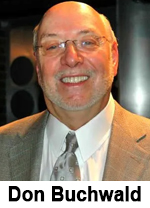 As originally reported by TMZ, well-known talent agent Don Buchwald died this past Monday (7/22) of natural causes at his Massachusetts home, where he was “surrounded by loved ones.” Buchwald formed his bi-coastal agency Don Buchwald & Associates in 1977 with five associates. The firm employs 130 employees who work across many platforms of entertainment and media. His most notable client, of course, was/is Howard Stern, as well as Stern’s longtime co-host, Robin Quivers. According to TMZ – Buchwald represented Stern personally, “while also acting as his manager and publicist. Stern was Don’s single personally-handled client and Howard referred to ‘super-agent Don Buchwald’ over the years on the radio. Buchwald was instrumental in helping Stern land a megadeal at SiriusXM worth an estimated $90 million a year.” Creator of SiriusXM’s Howard Stern Channels, Sabean Media president Tim Sabean posted on X, “I lost my closest pal today. You left an iconic legacy. I miss you with all my heart and soul. RIP my dear friend.” In a similar post, former SiriusXM SVP of sports programming Steve Cohen notes, “RIP my dear Don from Bensonhurst. An incredible friend, mentor and philanthropist. When I was down, you lifted me up. You made me smarter, wiser and taught me to be a deep thinker. Deepest condolences to the Buchwald family.” When Buchwald and Stern first met, they sat down in Buchwald’s office and talked for an hour. In a 2018 interview, Stern told The New York Times, “He turned to me and said, ‘You know, your career could be as big as Johnny Carson’s.’ I thought this guy might be a little bit nuts. But he believed in me from the very beginning, more than I believed in myself.” Having had no interest in being in the spotlight, Buchwald was quoted in that aforementioned article, “I’m not a particularly boastful person.” Don Buchwald was 88 years old.
As originally reported by TMZ, well-known talent agent Don Buchwald died this past Monday (7/22) of natural causes at his Massachusetts home, where he was “surrounded by loved ones.” Buchwald formed his bi-coastal agency Don Buchwald & Associates in 1977 with five associates. The firm employs 130 employees who work across many platforms of entertainment and media. His most notable client, of course, was/is Howard Stern, as well as Stern’s longtime co-host, Robin Quivers. According to TMZ – Buchwald represented Stern personally, “while also acting as his manager and publicist. Stern was Don’s single personally-handled client and Howard referred to ‘super-agent Don Buchwald’ over the years on the radio. Buchwald was instrumental in helping Stern land a megadeal at SiriusXM worth an estimated $90 million a year.” Creator of SiriusXM’s Howard Stern Channels, Sabean Media president Tim Sabean posted on X, “I lost my closest pal today. You left an iconic legacy. I miss you with all my heart and soul. RIP my dear friend.” In a similar post, former SiriusXM SVP of sports programming Steve Cohen notes, “RIP my dear Don from Bensonhurst. An incredible friend, mentor and philanthropist. When I was down, you lifted me up. You made me smarter, wiser and taught me to be a deep thinker. Deepest condolences to the Buchwald family.” When Buchwald and Stern first met, they sat down in Buchwald’s office and talked for an hour. In a 2018 interview, Stern told The New York Times, “He turned to me and said, ‘You know, your career could be as big as Johnny Carson’s.’ I thought this guy might be a little bit nuts. But he believed in me from the very beginning, more than I believed in myself.” Having had no interest in being in the spotlight, Buchwald was quoted in that aforementioned article, “I’m not a particularly boastful person.” Don Buchwald was 88 years old. Sports talk KNBR “680 & 104.5 The Sports Leader”; sports betting talk KGO “810 The Spread”; and sports talk KTCT “KNBR 1050 The Sports Leader” assistant program director Mike Hohler is elevated to program director for the three Cumulus Media San Francisco properties. According to Cumulus San Francisco-Los Angeles regional VP/market manager Larry Blumhagen, “I am excited to see Mike Hohler take the reins as program director of these dynamic, listener-driven stations. Mike has been a dedicated member of this terrific team for over two decades and knows every working part of our programming operations. He has meaningful relationships with our broadcast partners, which he will continue to build upon and grow in his new leadership role.” Hohler joined Cumulus San Francisco in 2002 as KNBR’s midday producer. Succeeding him as APD for the three stations is KNBR “Murph & Markus” morning show producer John Kerley.
Sports talk KNBR “680 & 104.5 The Sports Leader”; sports betting talk KGO “810 The Spread”; and sports talk KTCT “KNBR 1050 The Sports Leader” assistant program director Mike Hohler is elevated to program director for the three Cumulus Media San Francisco properties. According to Cumulus San Francisco-Los Angeles regional VP/market manager Larry Blumhagen, “I am excited to see Mike Hohler take the reins as program director of these dynamic, listener-driven stations. Mike has been a dedicated member of this terrific team for over two decades and knows every working part of our programming operations. He has meaningful relationships with our broadcast partners, which he will continue to build upon and grow in his new leadership role.” Hohler joined Cumulus San Francisco in 2002 as KNBR’s midday producer. Succeeding him as APD for the three stations is KNBR “Murph & Markus” morning show producer John Kerley.  Regarding Kerley, Blumhagen notes, “He brings a strategic approach to the assistant program director role for our sports talk stations. We are fortunate to have such a talented and collaborative sports programming team and are in very capable hands with Mike and John at the helm. Our all-star lineup – including all the great talent in our bullpen – makes for a winning team and positions these stations for continued success.” The Hohler and Kerley promotions are effective next Monday (7/29).
Regarding Kerley, Blumhagen notes, “He brings a strategic approach to the assistant program director role for our sports talk stations. We are fortunate to have such a talented and collaborative sports programming team and are in very capable hands with Mike and John at the helm. Our all-star lineup – including all the great talent in our bullpen – makes for a winning team and positions these stations for continued success.” The Hohler and Kerley promotions are effective next Monday (7/29).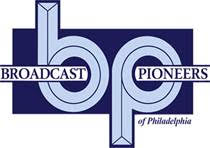 Former MLB relief pitcher/26-year Philadelphia Phillies radio analyst Larry Anderson; Beasley Media Group account representative Tina Costello; iHeartMedia, Philadelphia news/community affairs director Loraine Ballard Morrill; and long-time (now retired) all-news KYW, Philadelphia anchor/“Reporters Roundup” host Steve Nikazy are among those who will be entering the Broadcast Pioneers of Philadelphia (BPOP) Hall of Fame. Along with six others, these four will be inducted into the Hall at the nonprofit’s gala in approximately four months (11/22). Hosting the BPOP Hall of Fame event will be 15-time Emmy winner/2015 inductee CBS News Philadelphia morning and noon anchor Jim Donovan and former WPVI-TV, Philadelphia sports anchor/2005 HOF honoree Scott Palmer. Founded in 1962, The Broadcast Pioneers of Philadelphia honors the broadcast history of Philadelphia, supporting the next generation of broadcasters through scholarships and educational opportunities and recognizing those who have made lasting contributions to the industry.
Former MLB relief pitcher/26-year Philadelphia Phillies radio analyst Larry Anderson; Beasley Media Group account representative Tina Costello; iHeartMedia, Philadelphia news/community affairs director Loraine Ballard Morrill; and long-time (now retired) all-news KYW, Philadelphia anchor/“Reporters Roundup” host Steve Nikazy are among those who will be entering the Broadcast Pioneers of Philadelphia (BPOP) Hall of Fame. Along with six others, these four will be inducted into the Hall at the nonprofit’s gala in approximately four months (11/22). Hosting the BPOP Hall of Fame event will be 15-time Emmy winner/2015 inductee CBS News Philadelphia morning and noon anchor Jim Donovan and former WPVI-TV, Philadelphia sports anchor/2005 HOF honoree Scott Palmer. Founded in 1962, The Broadcast Pioneers of Philadelphia honors the broadcast history of Philadelphia, supporting the next generation of broadcasters through scholarships and educational opportunities and recognizing those who have made lasting contributions to the industry.  Former Chicago Council On Global Affairs president/chief content officer Sarah Gilbert is appointed president/chief executive officer of WAMC
Former Chicago Council On Global Affairs president/chief content officer Sarah Gilbert is appointed president/chief executive officer of WAMC  Sacred Heart University-owned public radio news/talk WSHU appoints Brad Dancer general manager. Sacred Heart president John J. Petillo notes that Fairfield, CT’s WSHU is a, “unique organization whose mission is to serve our community with extraordinary programming that informs and inspires. I am confident that Brad Dancer will foster a culture of innovation and shepherd the station into a new era of content creation that goes well beyond the radio.” Holding bachelor’s and master’s degrees from Purdue University and the University of Maryland, respectively, Dancer remarks, “WSHU has a remarkable legacy of excellence, and I am honored to be part of this community. The collective talent and passion of the WSHU team has earned us the loyalty of our dedicated audience as well as countless prestigious awards – this uniquely positions us for success. I am confident that – together – we will achieve even greater things.” Dancer has previously held news, education, and cultural content positions at National Geographic, WWE, Disney, Canela Media, and Paramount. In addition to serving on the boards of All People Marketplace; Modal Learning; and Connecticut Gift of Adoption, he’s been an adjunct professor at Roosevelt University.
Sacred Heart University-owned public radio news/talk WSHU appoints Brad Dancer general manager. Sacred Heart president John J. Petillo notes that Fairfield, CT’s WSHU is a, “unique organization whose mission is to serve our community with extraordinary programming that informs and inspires. I am confident that Brad Dancer will foster a culture of innovation and shepherd the station into a new era of content creation that goes well beyond the radio.” Holding bachelor’s and master’s degrees from Purdue University and the University of Maryland, respectively, Dancer remarks, “WSHU has a remarkable legacy of excellence, and I am honored to be part of this community. The collective talent and passion of the WSHU team has earned us the loyalty of our dedicated audience as well as countless prestigious awards – this uniquely positions us for success. I am confident that – together – we will achieve even greater things.” Dancer has previously held news, education, and cultural content positions at National Geographic, WWE, Disney, Canela Media, and Paramount. In addition to serving on the boards of All People Marketplace; Modal Learning; and Connecticut Gift of Adoption, he’s been an adjunct professor at Roosevelt University.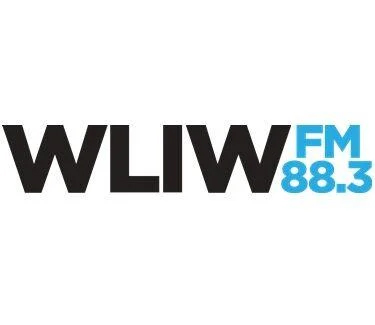 As a result of purchasing the frequency of long-silent Montauk, NY’s WEER-FM (88.7), The WNET Group will extend coverage of its public radio news/talk outlet WLIW-FM. The addition of 88.7 will allow WLIW-FM’s signal to reach Southern Connecticut and Rhode Island. WLIW-FM VP/GM Diane Masciale notes, “WLIW-FM has taken another step forward in our coverage and commitment to our community. In the weeks ahead, we’re also looking to deliver a new app that will allow audiences to easily take WLIW-FM wherever life takes them.”
As a result of purchasing the frequency of long-silent Montauk, NY’s WEER-FM (88.7), The WNET Group will extend coverage of its public radio news/talk outlet WLIW-FM. The addition of 88.7 will allow WLIW-FM’s signal to reach Southern Connecticut and Rhode Island. WLIW-FM VP/GM Diane Masciale notes, “WLIW-FM has taken another step forward in our coverage and commitment to our community. In the weeks ahead, we’re also looking to deliver a new app that will allow audiences to easily take WLIW-FM wherever life takes them.” Following up on a story reported yesterday (7/22) in TALKERS, an Audacy Insights Team blogpost (“Local News Radio Listenership Soars”) cites Nielsen Audio listenership increases following the July 13 assassination attempt on former President Donald Trump. Leading up to quoting specific stats, the research piece states, “Local news audiences are incredibly engaged” and are “twice as likely to stick around through radio ads compared to the average listener. These listeners trust local news radio for its reliable voices and factual reporting.” On July 13, Audacy news stations “saw a 32% jump in streams compared to the same day the week before. Mobile streams led the way with a 45% increase, while smart speaker usage rose by 30%.” The assassination attempt took place in Butler, PA, roughly 40 miles from Pittsburgh where Audacy news/talk KDKA-AM “experienced a 55% increase in streams.” Meanwhile, its Los Angeles all-news operation, KNX, “saw a 41% rise.” Per the Audacy blog, “Spikes in listenership across digital audio platforms confirm that local news radio stations are truly with you during critical times, offering reliable and detailed coverage when needed most.” Engagement continued leading up to last Monday (7/15), the first day of the Republican National Convention, as Audacy news stations “experienced a 5% rise in listenership compared to the previous Monday.” The Audacy blog contends approximately two of three (65%) all-news listeners “trust radio hosts for news updates, compared to 30% who look to social media influencers for such information.” The July 13 assassination attempt “highlights the essential role of local news radio. With a significant boost in listenership and a clear preference for trustworthy, community-focused reporting, local news radio remains a key player in delivering reliable news.”
Following up on a story reported yesterday (7/22) in TALKERS, an Audacy Insights Team blogpost (“Local News Radio Listenership Soars”) cites Nielsen Audio listenership increases following the July 13 assassination attempt on former President Donald Trump. Leading up to quoting specific stats, the research piece states, “Local news audiences are incredibly engaged” and are “twice as likely to stick around through radio ads compared to the average listener. These listeners trust local news radio for its reliable voices and factual reporting.” On July 13, Audacy news stations “saw a 32% jump in streams compared to the same day the week before. Mobile streams led the way with a 45% increase, while smart speaker usage rose by 30%.” The assassination attempt took place in Butler, PA, roughly 40 miles from Pittsburgh where Audacy news/talk KDKA-AM “experienced a 55% increase in streams.” Meanwhile, its Los Angeles all-news operation, KNX, “saw a 41% rise.” Per the Audacy blog, “Spikes in listenership across digital audio platforms confirm that local news radio stations are truly with you during critical times, offering reliable and detailed coverage when needed most.” Engagement continued leading up to last Monday (7/15), the first day of the Republican National Convention, as Audacy news stations “experienced a 5% rise in listenership compared to the previous Monday.” The Audacy blog contends approximately two of three (65%) all-news listeners “trust radio hosts for news updates, compared to 30% who look to social media influencers for such information.” The July 13 assassination attempt “highlights the essential role of local news radio. With a significant boost in listenership and a clear preference for trustworthy, community-focused reporting, local news radio remains a key player in delivering reliable news.”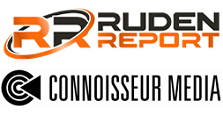 Founded 11 years ago by Dave Ruden, The Ruden Report website (www.therudenreport.com) is dedicated to Fairfield County (Connecticut) sports news and information. Ruden will remain with the online publication as director of operations. Connoisseur Media owner/chief executive officer Jeff Warshaw comments, “We’re happy to have The Ruden Report join our family. We look forward to offering our audience local content with his exceptional reporting.” Connoisseur Media senior vice president/general manager Kristin Okesson states, “This addition to our programming lineup is a perfect fit for each station and their audiences. As someone who values high school sports coverage, I’m excited to bring The Ruden Report to our six radio stations. I know our Southern Connecticut listeners will enjoy the local updates and in-depth coverage of their favorite teams, athletes, and games.” Ruden adds, “My ongoing goal has been to cover more which is why I have decided to partner with Connoisseur Media. It is a company that has both a longstanding tradition of excellence and the infrastructure to help take The Ruden Report to the next level.” Connoisseur’s six Connecticut stations include Bridgeport heritage news/talk WICC.
Founded 11 years ago by Dave Ruden, The Ruden Report website (www.therudenreport.com) is dedicated to Fairfield County (Connecticut) sports news and information. Ruden will remain with the online publication as director of operations. Connoisseur Media owner/chief executive officer Jeff Warshaw comments, “We’re happy to have The Ruden Report join our family. We look forward to offering our audience local content with his exceptional reporting.” Connoisseur Media senior vice president/general manager Kristin Okesson states, “This addition to our programming lineup is a perfect fit for each station and their audiences. As someone who values high school sports coverage, I’m excited to bring The Ruden Report to our six radio stations. I know our Southern Connecticut listeners will enjoy the local updates and in-depth coverage of their favorite teams, athletes, and games.” Ruden adds, “My ongoing goal has been to cover more which is why I have decided to partner with Connoisseur Media. It is a company that has both a longstanding tradition of excellence and the infrastructure to help take The Ruden Report to the next level.” Connoisseur’s six Connecticut stations include Bridgeport heritage news/talk WICC.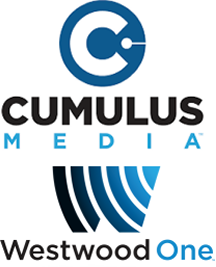 Back in 1988, Steve and Anita Hotsenpiller launched Columbia, MO-based Steve’s Pest Control with one truck and an ad campaign on a local radio station. Once the business grew, roughly 9% of their revenue was allocated to purchase ad time on more stations. Fast-forward to today, Steve’s Pest Control has 90 trucks and leads all pest control competitors in Missouri, eventually becoming one of local radio’s largest advertisers. Their humorous radio spots include the tag line, “Now you’ve got a friend in the pest control business – Steve’s Pest Control.” As Cumulus Media/Westwood One Audio Active Group chief insights officer Pierre Bouvard details in his blog, “Steve’s Pest Control offers Madison Avenue a master class on creating future demand, and how building a brand is the main driver of long-term growth and profit. These days Madison Avenue is obsessed with the science of measuring the short-term sales effect of advertising and converting existing demand. Steve’s knows what Madison Avenue has forgotten: To generate substantial sales and profit, a business needs to create future demand rather than just obsess over converting existing demand.” Bouvard points out that in a December 2023 MARU/Matchbox survey of nearly
Back in 1988, Steve and Anita Hotsenpiller launched Columbia, MO-based Steve’s Pest Control with one truck and an ad campaign on a local radio station. Once the business grew, roughly 9% of their revenue was allocated to purchase ad time on more stations. Fast-forward to today, Steve’s Pest Control has 90 trucks and leads all pest control competitors in Missouri, eventually becoming one of local radio’s largest advertisers. Their humorous radio spots include the tag line, “Now you’ve got a friend in the pest control business – Steve’s Pest Control.” As Cumulus Media/Westwood One Audio Active Group chief insights officer Pierre Bouvard details in his blog, “Steve’s Pest Control offers Madison Avenue a master class on creating future demand, and how building a brand is the main driver of long-term growth and profit. These days Madison Avenue is obsessed with the science of measuring the short-term sales effect of advertising and converting existing demand. Steve’s knows what Madison Avenue has forgotten: To generate substantial sales and profit, a business needs to create future demand rather than just obsess over converting existing demand.” Bouvard points out that in a December 2023 MARU/Matchbox survey of nearly  That’s an important reason to continuously advertise your business. Also, advertising memories fade. Steve’s usage of AM/FM radio advertising has built a dominant brand. It is so impressive for a local business to win against big national brands.” Creative testing firm System1 conducted an evaluation of Steve’s Pest Control’s radio spots, which scored an 84% in brand recognition, demonstrating effective branding that resonates with listeners long after the ad has played. System1 VP of partnerships insights and strategy Allison O’Toole comments, “Steve’s Pest Control’s category ownership – built on long-term radio advertising – shows the potential of audio to work hard and deliver lasting results for any brand.”
That’s an important reason to continuously advertise your business. Also, advertising memories fade. Steve’s usage of AM/FM radio advertising has built a dominant brand. It is so impressive for a local business to win against big national brands.” Creative testing firm System1 conducted an evaluation of Steve’s Pest Control’s radio spots, which scored an 84% in brand recognition, demonstrating effective branding that resonates with listeners long after the ad has played. System1 VP of partnerships insights and strategy Allison O’Toole comments, “Steve’s Pest Control’s category ownership – built on long-term radio advertising – shows the potential of audio to work hard and deliver lasting results for any brand.”